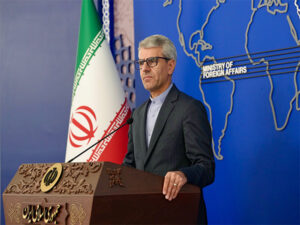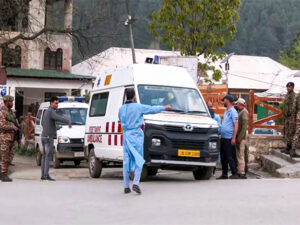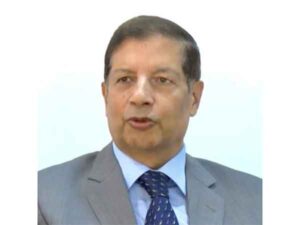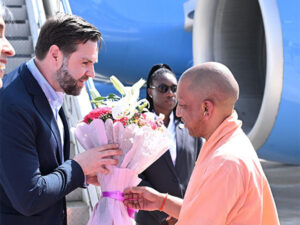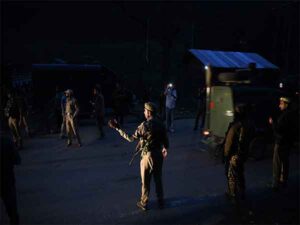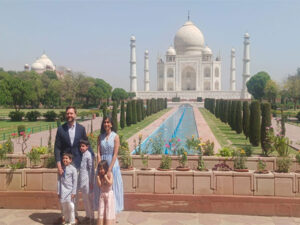Reform of UNSC more urgent than ever: Germany
New York [US], February 11 (ANI): Germany, one of the members of Group of Four on Friday reiterated the need for reform in the United Nations Security Council (UNSC).
“Reform of the UN Security Council more urgent than ever. #G4 India, Japan, Brazil and Germany remain strongly committed. Sincere thanks to Amb. Motta of Brazil, JS Gupta of India and DG Ichikawa of Japan, for a very fruitful meeting with DG Sautter in Berlin today,” tweeted Germany in the United Nations. The G4 is a group of four countries- Brazil, Germany, India, and Japan- aspiring to become permanent members of the United Nations Security Council (UNSC). The grouping was formed in 2005.
Earlier, the G4 countries met on the sidelines of the 76th session of the UN General Assembly and highlighted the urgent need for reform in the UNSC. Recently, India’s Permanent Representative to the UN, Ambassador Ruchira Kamboj delivered the G4 Statement at the United Nations General Assembly (UNGA) on equitable representation of the UN Security Council. “Today I delivered the G4 Statement at the UNGA on equitable representation of the UN Security Council.
The longer reform is stalled, the greater the deficit in representation which is an inescapable precondition for Security Council legitimacy and effectiveness,” Kamboj tweeted. Speaking on behalf of the G4 countries, she said “It is also important to bear in mind that during this year’s High-level week, including the General Debate of the 77th General Assembly, more than 70 Heads of State and Government and high-level governmental representatives underlined that reforming the Security Council should be one of our priorities during this session.
This broad support for this topic confirms its relevance and urgency.”
“The longer the Security Council reform is stalled, the greater its deficit in representation. And representation is an inescapable precondition for its legitimacy and effectiveness,” she added.
India’s Permanent Representative stressed it is high time to bring the Security Council in line with its Charter responsibility to act on behalf of the entire Membership. “This will not be achieved without enhancing the membership in both categories. Only this will enable the Council to effectively manage today’s global conflicts and increasingly complex and interconnected global challenges it faces today,” she added.
Ambassador Kamboj said the G4 has been consistently asking for a single consolidated text and for renewed working methods to bring about an open, inclusive and transparent process, with webcasting, record-keeping and the application of the rules of procedure of the General Assembly.
“A single consolidated text, preferably with attribution, is the only means to move away from the cycle of repetition of well-known positions that have been the trademark of the IGN (Intergovernmental Negotiations) in the recent past,” she said.
Reiterating G4’s position, India’s senior diplomat said the four nations uphold the need for a comprehensive reform of the Security Council, with the expansion of seats in both categories of membership, equitable regional representation, more transparent and inclusive working methods and an enhanced relationship with other UN bodies, including the General Assembly.
The inability of the Security Council to effectively address the challenges vividly demonstrates the urgent need for UN Security Council reform to better reflect contemporary geopolitical realities, and to enhance its effectiveness and the legitimacy and implementation of its decisions. Meanwhile, on the opposing side is the Uniting for Consensus nicknamed the Coffee Club, which has been against the expansion of the permanent seats of UNSC since the 1990s.
The Uniting for Consensus (UfC), or the Coffee Club, emerged in the 1990s in opposition to the potential extension of permanent seats on the UN Security Council. Under the direction of Italy, it seeks to oppose the applications for permanent members put out by the G4 countries and is requesting a consensus before any decision is made regarding the structure and makeup of the Security Council.
Italy, along with Pakistan, Mexico and Egypt founded the Coffee Club in 1995 to reject the proposal to increase the number of permanent seats in the UNSC.
The Uniting for Consensus group contends that an increase in permanent seats will exacerbate the inequality among the member nations and lead to the cascading expansion of several privileges.
Other core members of this grouping are: Canada, Spain, Turkey, Argentina, and Malta.

